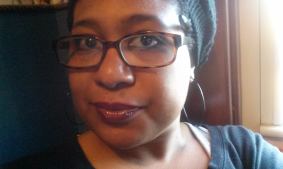
By Shermeeka Mason
The issues started two weeks ago when my former housemate, Kelleigh, told me that I had to move out. And I was given two weeks.
The reason, she explained, was that I became too comfortable, that she and her partners, Alan and James, were enabling me by letting me stay longer, and that I was prevented from reaching my highest potential.
At first, I thought about what she said, actually believing to some extent that Kelleigh may be right. The time period I was allotted was, of course, not enough, so I asked if I could stay until August 1st so I could at least get everything situated. “But will you be able to pay,” she asked with slight concern. My unemployment ran out at the beginning of June so I was unable to pay the $300 needed to pay for the room me and my cat Tobias shared (I thought my benefits would last until October—around the same time I was terminated). Until then, I was told that I could stay for an extended time as long as I paid rent every month—which I did until the benefits dried up.
Now I was given a two-week notice to “reach my highest potential.”
With very little money to my name, this sudden change caused me unnecessary anxiety and depression that made me emotionally shut down for the two days (I usually do this to process anything negative going on). My coping mechanism instigated further tension that resulted in me and Kelleigh distancing ourselves from one another.
It all came to a head when I found out from a lawyer friend of mine that, because I was not served eviction papers by a marshal, then Kelleigh and Alan were legally obligated to grant me thirty days to move out—not two weeks as originally requested. When I told Kelleigh this, that was when her true nature and feelings about me revealed themselves.
“So you’d rather stay someplace where you’re not even wanted?” she asked aggressively.
“It doesn’t matter,” I replied, feeling my own agitation. “I still have thirty days according to New York State law.”
“If you’re not out by Friday, your stuff will be on the lawn.”
“You can’t do that either because it’s against the law.”
“This is my fucking house and I can do whatever I want.”
When I stood my ground, her voice became louder and her tone more aggressive. She eventually declared the conversation over with and I left her room. I retreated to my room, my entire body shaking as I began dialing numbers absentmindedly just to talk to someone. The verbal assault and the feeling of being unwanted pushed right back into my childhood. All this because she was informed of state’s tenant laws?
I was sitting on my bed when she opened my door and starting accusing me of yelling at her. When I denied doing so, Kelleigh screamed:
“SO NOW YOU’RE WANTING TO PLAY THE VICTIM?? I WANT YOU TO GET THE FUCK OUT OF MY HOUSE. YOU YELLED AT ME DOWNSTAIRS, YOU SLAM DOORS, YOU TALK SHIT ABOUT US ON FACEBOOK, YOU BANG ON THE WALLS–”
“No, I didn’t!”
“YES YOU DO! I HEAR YOU ALL THE TIME DOING IT! YOU’RE A VIOLENT BITCH!!”
She then slammed the door and pulled on the knob, preventing me from leaving. “FUCK YOU!! I barked, banging on the door. I’M NOT VIOLENT, BITCH!!!
Kelleigh quickly opened the door once again. “SO NOW YOU’RE BANGING ON MY DOOR?? YOU SCARE THE LIVING SHIT OUT OF ME!!” She then hurried to her own room and shut the door, leaving in tears and reaching out to friends and family on Facebook.
Fuck the thirty days, I thought while I frantically typed my vitriol S.O.S. call. I wanted out and wanted out right then and there. Whatever it took—job or no job. A few minutes later, I heard a knock on my door. I opened the door with a shaky hand and found myself nearly face to face with not one cop, but two. Kelleigh told them that I lunged at her and because she’s blind, she feared for her safety. What? Last time I checked, she displayed very little fear while standing at my door calling me a violent bitch and hurling false accusations. And now she’s playing the role the potential blind assault victim?
That alone was the straw that broke the camel’s back.
For the rest of the week, I was on guard and extremely standoffish. If I did address Kelleigh or Alan, it had something to do with what I needed to take care of before I finally left. Even as my friend Lilah and I loaded her car with my belongings, they displayed bouts of subtle disrespect—especially her husband Alan, who kept observing my every move while doing nothing to help. When Alan did speak, he made comments like “At least you got the attic cleared out” or “How many more trips do you have?” in attempts to rush me out.
Tobias and I are currently living with my friend Phill and his cat daughter, Princess, until I get on my feet again. He’s a fellow Nichiren Buddhist who immediately opened his home to the both of us and I feel a difference emotionally, mentally, and spiritually. Now that I’m settled for the most part, I can finally process the debauchery that was the last week. In fact, ‘debauchery’ isn’t the appropriate term for this experience. It was basically an example of an immense abuse of power involving socioeconomics, economic abuse, disability-shaming, mental illness, the misuse of positive psychology, and religious/emotional manipulation.
That’s a mouth full, right? But bear with me and I’ll explain what I mean.
Before I moved into their home, Kelleigh and I had already connected as friends and spiritual beings. By “spiritual beings,” I’m referring to the fact that we share similar beliefs regarding mediumship, energy, and anything pertaining to the paranormal. I do not speak about that part of my life often, so it was a relief to share that aspect of myself with someone. It was because of this that I also connected with her emotionally, disclosing to her my distrust of most people while crying on her shoulder. So I moved in truly believing I had found a kindred spirit.
They all knew that I had no job and living on unemployment, but also me and my cat to stay in the spare room because we were all under the impressions that I would be gone within two weeks. But when my housing plans fell through, Kelleigh comforted me by saying that it was ok because she appreciated a having a spiritual woman in the house—even if only a for short period.
Eventually I was given the opportunity to stay there as long as I paid rent because I couldn’t find a place. She told me that was a member of the family and became enmeshed in their household culture as far as helping around the house.
Though I was grateful for their help, there were some red flags—especially in regards to finances. They had more of an income than I did, yet took the majority of my benefits for rent. I was initially supposed to pay $400, but that was too much, considering the other expenses I had. I even said that if $400 was the price, then I will have to find another location.
“Where are you going to go where you can stay for free?” she asked. I told her that I could reach out the Care Management team at Trillium, but no other immediate option other than a shelter.
We finally agreed on $300 a month—or $75 a week. Though it was still a little steep, it was better than being on the street and it included everything. But I soon began falling behind on other expenses such as my cell phone bill and storage fee. Despite me sharing this concern, Kelleigh and Alan still expected to pay the amount agreed.
Speaking of concerns, there were also a few times when Kelleigh criticized my use of mental health services. She stated more than once that, though completely blind, she managed to maintain her independence without the services. Therefore, she didn’t understand why I couldn’t do the same, wondering what I would do for myself once mental health services were no longer an option for me.
I became defensive immediately, explaining to her that this was my first time ever focusing on my mental health and trauma since graduating from college! Noticing my distress, Kelleigh told me that she and I were “the same person” because “we are both emotional people.” I want to point out that she made this comment a few times whenever I was upset about something she said or did. In retrospect, this was classic gaslighting, a form of emotional manipulation utilized by abusers to make their victims question their own reality.
But I refused to internalize her words, knowing that they only reason why I became pissed: she compared her reality, her experiences, and emotion irregulation to mine when they were dissimilar.
For one, Kelleigh not only collects disability, but has two employed partners supporting her and the household financially. She has enough income to pay a mortgage, care for a menagerie of pets, and buy spiritual books online. I, on the other hand, was homeless and heavily relying on unemployment benefits to rent a room and care for Tobias—while searching for employment. And until recently, I was not prescribed adequate medication for my mental illness and Inattentive ADD so I was dealing with suicide ideations, chronic depression, anxiety, and PTSD symptoms—in addition to not possessing the wherewithal to maintain focus and motivation. I’m the complete opposite when on the right meds and I know this about myself.
So by making such comparisons, my fellow “spiritual being” was erroneously implying that I heavily rely on services as if they were a crutch. Even if that was the case, my receiving assistance—and what that entailed—was really no concern of hers as I was taking the initiatives necessary to better myself. Therefore, Kelleigh’s assessment of me using social services I needed was inappropriate, extremely shaming, and psychologically violent.
Her need to give unsolicited pseudo-spiritual advice involving positive psychology soon put me on pause. Two days after telling me I had to move, Kelleigh accused me of “having an attitude.” “Either you can make the next two weeks miserable or it could be positive,” she said calmly in front of her silent partners.
“You gave me two weeks and I don’t know what’s going to happen to me,” I snapped. “So if I have an attitude, it’s because I’m scared. I’m trying not to go off, which is why I’ve been silent for the past two days. Ok?” I then went upstairs to my room, suddenly feeling sickened by what just occurred.
I stopped believing in positive psychology years ago because its main purpose is to completely dismiss individuals’ negative emotions. Practiced by many metaphysical spiritualists, this school of thought is not only detrimental to those struggling with mental illness and emotional issues, but there is no scientific evidence supporting its validity. Not to mention that positive psychology is NEVER about the individual dealing with negative thinking, but ALWAYS about someone else’s discomfort. And in this case, this “choice” pertaining to my emotional state was about Kelleigh and her partners’ discomfort with confrontation.
So telling me to “be positive” when I was being disposed of was nothing more than her slapping me in the face while praying for me. This alone is why I’m officially distrusting of those practicing metaphysical spirituality, for Kelleigh was the third practictioner to show their true nature once realizing that they have no control over me.
Long story short, I am glad to have distance myself from such a toxic situation. For the being, Tobias and I are living in a safe place until I find employment that will support me, my furry ball of a son, and my dreams of being a full-time writer and public speaker. But living with Kelleigh, Alan, and James also revealed to me how I am too nice to individuals who are all too willing to dispose of me. I experienced this with people I’ve dated, worked with, and befriended. I wasted so much energy and time striving to prove myself to those who don’t deserve anything involving me. So regardless of how hurtful and abusive the living arrangement was, I now know that from this moment on, I will give time and energy to not only care for myself and spirit, but support those who show me genuine love and support.
Author Bio: Shermeeka M.L. Mason is a self-published author, blogger, and volunteer radio show host. She recently published the political science-fiction novel, The One Taken from the Sea of Stars under the pen name Octavia Davis. She is also the creator of and contributor for two blogs, The Possible World and The Chuck Taylor Buddhist (both available on WordPress.com). In addition to being an active author, Mason is currently one of the co-hosts of The Bonfire Talks on WAYO 104.3 FM. In her spare time, she reads, performs with the Rochester Womens’ Community Chorus, binges on Facebook, and spends time with beloved cat-son, Tobias.




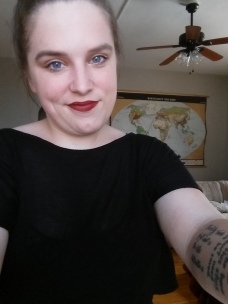




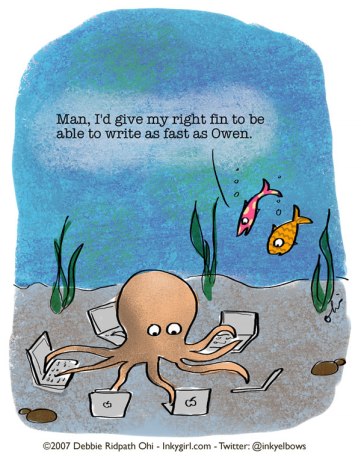


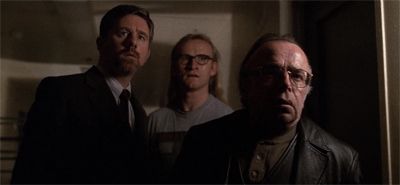
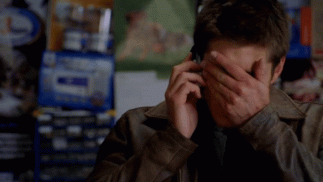
You must be logged in to post a comment.